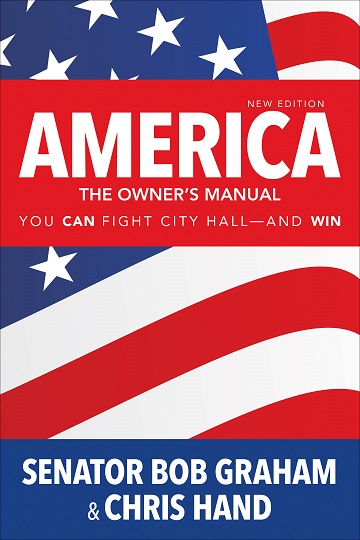In phrases like “civic education,” “civic engagement,” “civic technology,” or (as in the name of our college) “civic life,” what does the word “civic” mean? In conversations and writing about the topic, I detect several definitions. Each definition can be introduced with a different keyword:
- Power. Perhaps politics means influencing decisions and institutions to get the outcomes you want–or at least to move them closer to your preferences. In democracies, citizens have tools for increasing their influence, e.g., popular votes, petitions, strikes, and protests. “Civic” activities may mean tools for power and influence that are relatively democratic. That category would include popular votes but not presidential decrees; grassroots petitions but not professional lobbying efforts. Acts like voting and contacting government are often included in official surveys of civic engagement. Note that in this conception, politics is zero-sum (every decision has winners and losers), but what makes a form of politics “civic” is its accessibility to ordinary citizens.
- Virtue. The adjective “civic” is often paired with nouns like “virtue,” “character,” or “values.” In this conception, the civic is a subset of the political. It’s the best part, the part that exemplifies classical republic virtues, such as concern for the common good, patriotism or cosmopolitanism, commitment to law and to equity, and perhaps even self-sacrifice.
- The commons. Every society needs common resources as well as privately owned ones. Common goods may include natural resources (such as air), institutions (such as law), knowledge (such as general principles of science), and norms (such as trust). The whole commons is the “commonwealth,” a direct translation of the Latin res publica (public thing), from which we derive the word “republic.” The commonwealth can be created, expanded and protected, or exploited and degraded. According to some theorists, the civic is work that contributes to the commons. That would include paid work in for-profit enterprises if it produces public goods directly or as externalities. (Note the direct contrast with #1. There, civic engagement was generally zero-sum. Here, it is defined as win/win.)
- Discourse. In some ancient and still-influential conceptions, the core function of a citizen is to deliberate about what is right and good. Public deliberation creates public opinion, which should influence institutions, such as states, courts, and perhaps firms and markets. Civic discourse is defined by deliberative values, such as genuine openness to what others are saying, commitment to truth, and pursuit of consensus. Classical civic institutions are spaces for discourse: newspapers, coffee shops, legislatures, and (now) the Internet.
- Community. People need social bonds: to be cared for and to care for others. Most human beings–and especially vulnerable people like children–thrive much better when they are embedded in an affective community. The norms and habits that form among people in such communities (“social capital”) are also resources that can be used for power, discourse, etc. To measure social capital, one typically aggregates behaviors like volunteer service and membership in groups, plus attitudes like trust and care. “The civic” is whatever contributes to such community bonds.
- Performance. Some would say that civic life offers spaces for people to perform and to be recognized by others. Life is richer and more satisfying when we can create personas and display them for others, and when others can acknowledge and appreciate who we are. The main purpose of a public debate is not to identify the best policy but to display characters. For instance, in the cabinet battles imagined by Lin-Manuel Miranda, Alexander Hamilton and Thomas Jefferson get to show off who they are, and that’s why it’s so great to be in “the room where it happens.” Debate is only one form of performance; activities like theater, spoken word, gaming, and design also count. On this conception, Augusto Boal’s Theater of the Oppressed might be the pinnacle of the civic.
I value all these things. It’s tempting to say, then, that the right definition of “the civic” is the union of all of them. But that seems a bit ad hoc, a miscellaneous assemblage of desirable behaviors and values. It would be better to have an organized account of how they all fit together. For instance, perhaps we need community to provide people with enough support that they can exercise relatively equal power, but power is best when informed by deliberative discourse. In turn, deliberation encourages attention to the commons, allows performance, and both requires and develops republican virtues.
That is a rather discourse-centered theory; one could instead make the various ideas center on the commonwealth, or on democratic exercises of power. It’s also reasonable to weigh some of these ideas much more heavily than others.
See also: what is the definition of civic engagement? and defining civic engagement, democracy, civic renewal, and related terms
 I’m delighted to see that the new edition of America: The Owner’s Manual is out. Senator Bob Graham, a truly dedicated leader for civic engagement, has written it with Chris Hand. They take the research, structure, and impact of the book with the utmost seriousness and have worked hard to revise it for a new edition. As I say in my blurb, “America, the Owner’s Manual is the only book that comprehensively explains how to be effective in American politics and civic life, and it does so brilliantly. It’s consistently practical, realistic, accessible, and inspiring. It’s perfect for anyone who wants to improve the world.” It works very well as a textbook, but you can also use it on your own or with a voluntary group.
I’m delighted to see that the new edition of America: The Owner’s Manual is out. Senator Bob Graham, a truly dedicated leader for civic engagement, has written it with Chris Hand. They take the research, structure, and impact of the book with the utmost seriousness and have worked hard to revise it for a new edition. As I say in my blurb, “America, the Owner’s Manual is the only book that comprehensively explains how to be effective in American politics and civic life, and it does so brilliantly. It’s consistently practical, realistic, accessible, and inspiring. It’s perfect for anyone who wants to improve the world.” It works very well as a textbook, but you can also use it on your own or with a voluntary group.
